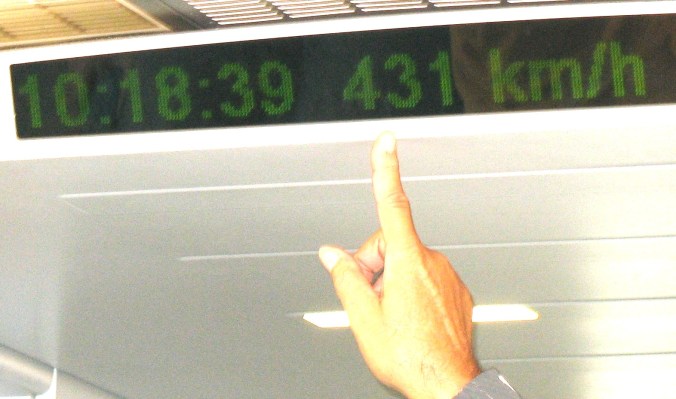It’s a potential “doomsday machine.” It’s “quite literally out of control.” Hedge fund managers and Nobel winners say it should be banned. Others insist it should at least be regulated. Its practitioners are “parasites.” Mark Cuban says they are “the ultimate hackers,” who “scared the hell out of me.”
Last week they wiped out $440 million of Knight Capital’s capital. Earlier this year they messed up Facebook’s IPO. A couple of years ago they caused the Dow’s 1,000-point flash crash. And everyone’s horrified by that GIF making the rounds. Yes, it’s the bête noire to end all bête noires; high-frequency trading.
The only problem here is that I don’t really see the problem.
Oh, I’m not saying high-frequency hackers are saints. And the claims that they improve market liquidity don’t seem to hold water. But:
as long as small investors only trade in or out of each position only once a or just a few times a year, [losses due to HFT] are often less than the losses they may have incurred from higher trading commissions as little as 10 years ago.
An apparently damning ZeroHedge interview with a high-frequency trader is defanged at the end by the very same point:
You can mitigate this risk by being patient with your orders. If you enter a limit order and it isn’t hit in the first hour, don’t impatiently move it. Stand your ground. That way, you can dictate the price you take, even in the midst of all the HFT noise.
So who are high-frequency hackers hurting, exactly? Not Warren Buffett-style buy-and-hold investors:
Most of the vocal critics of HFT are short-term day trading types – why? Because computers are better at arbitraging away the small price differentials those guys live off of. [HFT] does not serve a social benefit, but the people it is taking money from also don’t really serve a social benefit.
argues one MetaFilter contributor, convincingly. And that Knight Capital blowout? Apparently that’s just what you get when you accidentally release your test code into the New York Stock Exchange. Live by the sword, die by the sword:
Still, you have to admire the HFT hackers’ sheer chops. “You always hear about Google programmers being the best in the industry, but I’ve been to a couple Google interviews and turned them down both times because the engineering quality just isn’t there,” claims one HFT programmer. There are even (admittedly somewhat crazed) claims that HFT trading will have spinoff benefits such as fleets of transatlantic drones and neutrino-powered communications. Even if not, though, it’s hard to see how high-frequency traders are anything but paragons of virtue compared to the bankers who were busy packaging collateralized debt obligations back in 2007.
At the end of the day, I subscribe to the quaint notion that companies actually have intrinsic value independent of Wall Street’s daily delusions, and if the latter grows increasingly disjoint from reality, then at fundament that is its problem, not everyone’s. The financial industry seems very fond of the notion that the civilization as we know it would collapse into anarchy without it continuing to mint huge profits from arcane financial convolutions, but I can’t shake the sense that–in the long run–another humbling financial catastrophe might actually be good for us all, since we don’t seem to have learned much of anything from the last one. Even if their critics are right, those hackers might inadvertently being doing us all a huge favor.
Image: Shanghai maglev train speedometer, by yours truly
